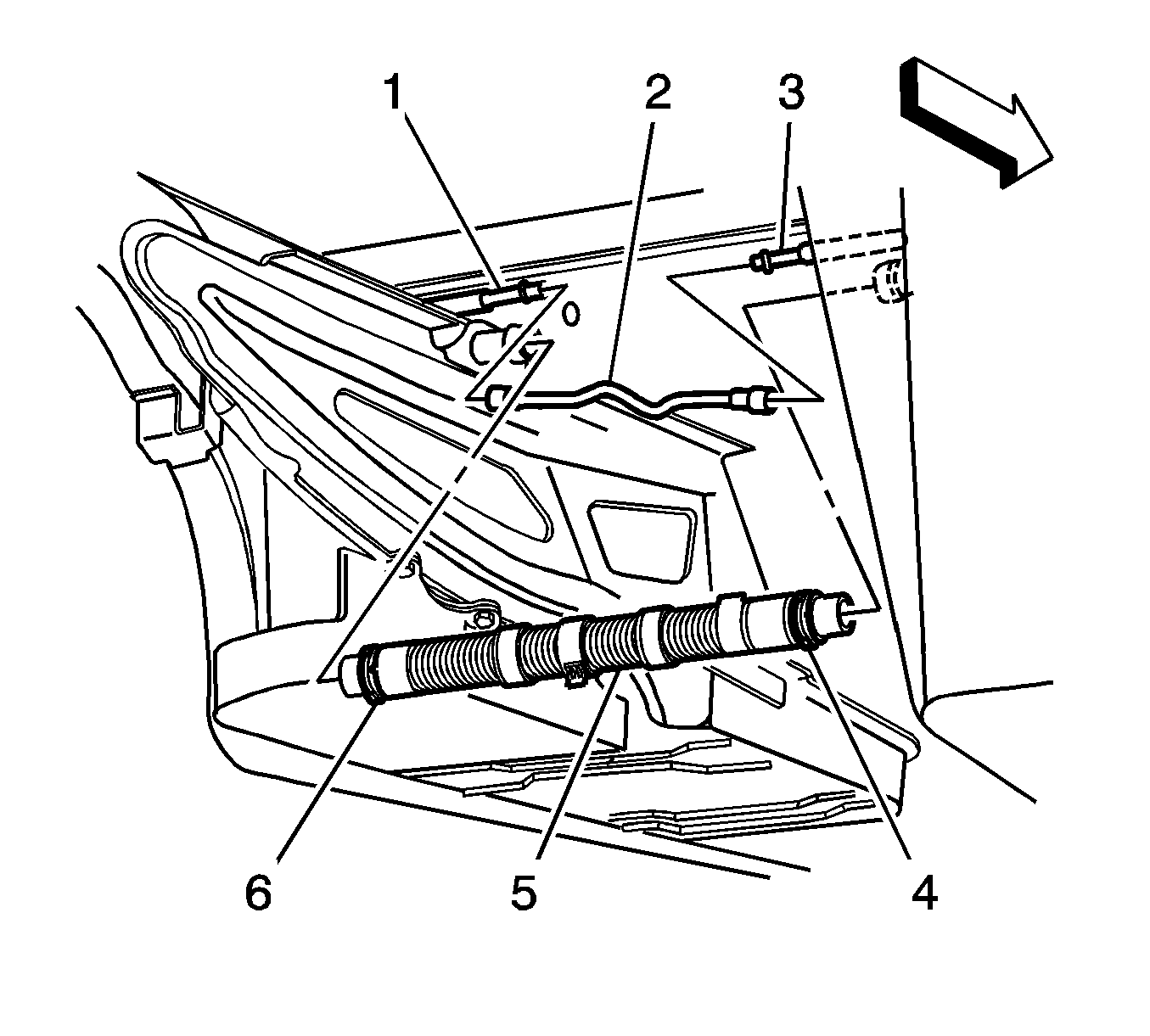Tool Required
J 34730-1A
Fuel Pressure Gage
Removal Procedure

- Disconnect the negative battery cable. Refer to
Battery Negative Cable Disconnection and Connection
.
- Relieve the fuel system pressure. Refer to
Fuel Pressure Relief
.
- Remove the fuel tank crossover tube. Refer to
Fuel Tank Crossover Tube Replacement
.
- Disconnect the EVAP pipe (2) at the right tank EVAP pipe (3) and the left tank EVAP pipe (1).
- Remove the rear EVAP pipe (2).
- Cap the open pipes in order to prevent possible contamination.
Installation Procedure

Notice: Replace the EVAP pipes and hoses with the original equipment or parts
that meet the GM specifications for those parts. The replacement EVAP pipe
must have the same type of fittings as the original pipe in order to ensure
the integrity of the connection. When replacing EVAP hoses, use only reinforced
fuel-resistant hose identified with the word Fluoroelastomer or GM 6163-M
on the hose. The inside hose diameter must match the outside pipe diameter.
Do not use rubber hose within 100 mm (4 in) of any part of the
exhaust system or within 254 mm (10 in) of the catalytic converter.
- Remove the caps from the pipes.
- Connect the EVAP pipe (2) at the right tank EVAP pipe (3) and the left tank EVAP pipe (1).
- Install the fuel tank crossover tube. Refer to
Fuel Tank Crossover Tube Replacement
.
- Install the right and left muffler. Refer to
Exhaust Muffler Replacement - Right Side
and
Exhaust Muffler Replacement - Left Side
.
- Refill the fuel system.
- Tighten the fuel filler cap.
- Connect the negative battery cable. Refer to
Battery Negative Cable Disconnection and Connection
.
- Use the following procedure in order to inspect for leaks:
| 8.1. | Turn the ignition switch ON, with the engine OFF for 2 seconds. |
| 8.2. | Turn the ignition switch OFF, for 10 seconds. |
| 8.3. | Turn the ignition switch ON, with the engine OFF. |
| 8.4. | Inspect for fuel leaks. |
- Program the transmitters. Refer to
Transmitter Programming
.


